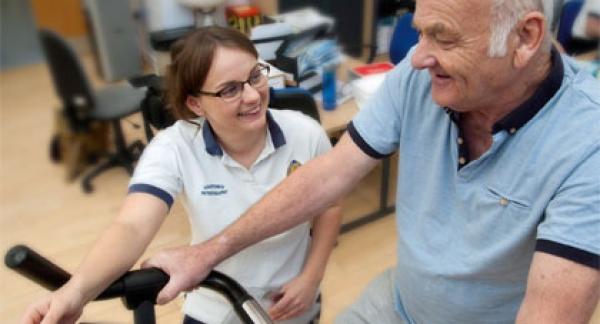Find out how CSP membership works if you are self-employed or a business owner.
Whether you’re a business owner or work fully or partly on a self-employed basis, CSP membership is for you.
We’re here to protect and support you through the services we offer. We provide you with a voice through our lobbying and campaigns, and offer access to the UK’s largest physiotherapy community.

Chartered status
Chartered status and the designation MCSP means you are more than just a physiotherapist; you are part of the voice of the profession. It’s widely recognised by other professions and the public as a hallmark of professionalism. This is also a key marketing advantage which many employers require or prefer, and patients appreciate.

The physiotherapy community
More than eight out of 10 physios are members. There are many opportunities to network with professional peers, from CSP regional networks and events and iCSP online forums, to specialist professional networks for which CSP membership is a precondition. These are all important ways to make links with peers, keep in touch with the profession and contribute towards the development of clinical standards.
Services to protect and support you

Legal support
As the union for physiotherapists, the CSP advises and represents independent practitioners being investigated by the HCPC. Two-thirds of the physios the CSP represents are from the independent sector; combine this with the average cost of legal representation at around £12,000 per case – well, you can rest assured we have your back if you ever need it.

PLI is an HCPC requirement
CSP membership provides the basic cover all independent practitioners need. You can also secure additional cover if you own your business. It’s worth it when you consider securing independent PLI usually costs more than CSP membership.

Advice and support
The CSP professional advice service, specialist events and webinars offer you expert advice from chartered physios. You can also access union advice on your rights as a worker, and clinical governance support.

Professional development: staying current
HCPC requires all physios to show they are learning and developing their skills – the CSP can help you do just this.
CSP membership provides access to free online tools to record work, reflections and achievements. You also have access to the latest research and content from WorldCat Discovery (the library catalogue of the CSP’s eLibrary, Knowledge and Archive Services) as well as an opportunity to develop your leadership skills through the CSP’s influencing training, Leadership Development Programme and mentoring scheme.
The voice of physiotherapy
The CSP’s campaigns promote physiotherapy to patients and potential funders. Our local promotional campaigns such as Love activity, hate exercise? are designed to provide opportunities for practitioners to promote their services locally, as well as to get profession-wide messages across to the public.
We are the only representative body for physios in the UK. We have lobbied government to highlight the need for policies to be more inclusive of the independent sector in the following areas:
- Pushing for pre-registration training numbers to take account of independent as well as NHS staffing needs.
- Winning the same access to visas for physios working outside the NHS as those in the public sector.
- Influencing the NHS to make temporary use of independent practitioners to supplement the NHS workforce during and after Covid.
- Campaigning for independent practitioners to have better access to Covid testing, and highlighting the anomalies around testing for independent physios treating people in care homes.
- Arguing that professional accreditation proposals from the HCPC and government agencies should recognise all sectors, not just the NHS.
- Creating alliance with other professions to lobby for better financial support for self-employed practitioners and small businesses.
- Successfully challenging contradictory advice for physios and people offering similar services outside of healthcare, which would disadvantage independent physios.
We will continue to represent practitioners in the independent sector in the future.